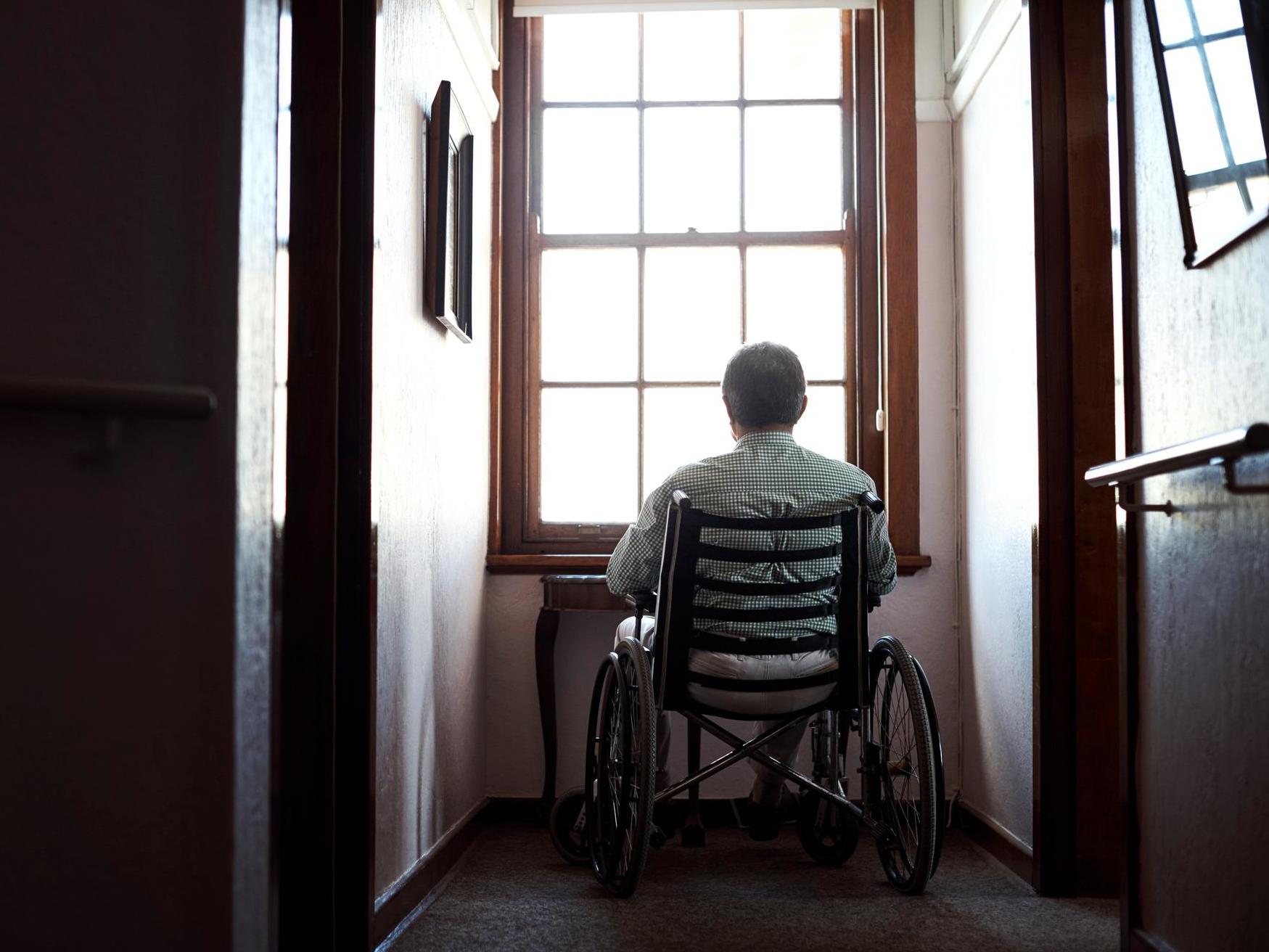Government loses court appeal over short-changing disabled benefit claimants
Lawyers say ruling must be ‘wake-up call’ for DWP on universal credit

Your support helps us to tell the story
From reproductive rights to climate change to Big Tech, The Independent is on the ground when the story is developing. Whether it's investigating the financials of Elon Musk's pro-Trump PAC or producing our latest documentary, 'The A Word', which shines a light on the American women fighting for reproductive rights, we know how important it is to parse out the facts from the messaging.
At such a critical moment in US history, we need reporters on the ground. Your donation allows us to keep sending journalists to speak to both sides of the story.
The Independent is trusted by Americans across the entire political spectrum. And unlike many other quality news outlets, we choose not to lock Americans out of our reporting and analysis with paywalls. We believe quality journalism should be available to everyone, paid for by those who can afford it.
Your support makes all the difference.The government has lost two appeals against court judgments that found the Department for Work and Pensions (DWP) had unlawfully discriminated against thousands of severely disabled people who were moved on to universal credit.
The Court of Appeal upheld two High Court rulings that people previously in receipt of the Severe Disability Premium (SDP) and Enhanced Disability Premium (EDP) – extra money to help with the cost of disability – were to be protected against a drop in their income when they moved on to the new benefit system.
The two claimants, known as TP and AR, had been forced to transfer to universal credit when they moved into a local-authority area where the new benefit system had been rolled out. Under the new system, they lost the SDP and EDP, suddenly leaving them about £180 a month worse off.
In June 2018, the High Court found that this was unlawful because people who moved to a new council area were being treated differently to those who moved within their current area.
As a result of the claimants' first challenge, the government attempted to rectify the situation by introducing regulations that stopped other severely disabled people from migrating to universal credit, and provided that others, like TP and AR, who had already moved on to the new benefit, would receive retrospective and ongoing recompense.
However, the government chose to compensate TP and AR and those like them at a rate of only £80 per month, rather than £180 per month, which is what they had actually lost.
TP and AR mounted their second legal challenge along with a third claimant, SXC, arguing that giving them the lower rate was unlawful because they were being treated differently to those who remained on legacy benefits.
The High Court found in their favour in May 2019, saying that ministers would have unlawfully short-changed thousands of severely disabled people who transferred to universal credit by a total of £1m if the plans had been allowed to go ahead.
The government, while appealing against both judgments, increased the top-up payments but only provided £120 per month. A third legal challenge regarding that decision is pending.
In an unanimous judgment on Wednesday morning, the Court of Appeal agreed with the lower courts that the DWP had unlawfully discriminated against the severely disabled claimants.
The court also found that the government had breached its duty of candour by failing to disclose during the first hearing that it had already made a policy decision to stop more severely disabled people from being moved on to universal credit and to stop providing transitional payments for those who already had.
In response to the ruling, AR said: “We hope that the Court of Appeal ruling will finally bring an end to our fight for severely disabled people not to be disadvantaged by universal credit. It is still so shocking to us that we have had to fight so long and so hard just to get the government to see that their policy is unfair.”
Tessa Gregory, from law firm Leigh Day, said the finding that thousands of severely disabled people had been subject to unlawful discrimination should be a “wake-up call” for the DWP.
“The government states that universal credit is protecting the most vulnerable but that has not been the experience of our clients, who faced a dramatic reduction in their monthly income when they moved on to the new benefits system and, when that was found to be unlawful, were offered a monthly top-up which didn’t even cover half of that loss.
“We hope that the government will waste no more time or resources fighting this legal case and will instead get on with what it should have been doing in the first place: protecting this acutely vulnerable cohort of claimants and overhauling universal credit to make it fit for purpose.”
A DWP spokesperson said: “We will continue to make transitional payments to those previously receiving the Severe Disability Premium where eligible, and have already paid £51.5m to more than 15,000 people. We are carefully considering this judgment.”
Join our commenting forum
Join thought-provoking conversations, follow other Independent readers and see their replies
Comments